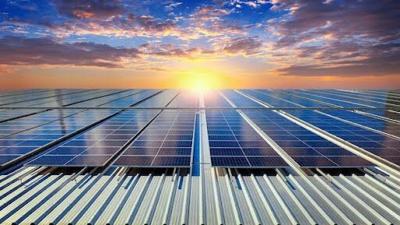
Installing solar panels for energy production in residential spaces is gaining immense popularity as it offers homeowners the capability to generate their own clean and green electricity from a renewable resource. A residential solar power system enables homeowners to power their homes with the electricity generated by the solar panels, reducing the amount of energy they need to draw from the grid.
Additionally, the words of the best minds of top solar NJ companies are anything to go by since solar panels do not release greenhouse gases or make carbon emissions. This makes them incredibly environmentally friendly, especially in comparison to the energy sources that are dependent on fossil fuels.
However, the vital decision to go solar demands careful planning and extensive research. Fortunately for you, in today’s post, we will walk you through everything you need to know to seamlessly navigate the process of installing solar panels in your house.
Ready? Let’s get started, then!
Evaluate Your Energy Needs
The first and foremost step before you plan your solar installs is to assess your energy consumption. Make sure to review your electricity bills from the past year to determine your average monthly usage in kilowatt-hours (kWh). This data is incredibly vital as it will enable you to size your solar panel appropriately. Also, an installed system that fulfills your energy needs can maximize your efficiency and savings.
Assess if Your Home Is Built to Go Solar
A solar panel comes with considerable upfront costs. However, when it’s done right, it pays off in the end. To get the most out of your system, make sure your house can accommodate solar panels before installing them on your roof.
The shading of your roof, its angle and orientation towards the sun, and its age all contribute to its capacity to generate solar energy. In an ideal scenario, your solar panels should always be installed on asouth-facing roof with minimal to no shading. It must also tilt between 15 and 40 degrees. It is still possible to have a productive solar panel system if the roof of your house falls outside those parameters. However, it’s critical to comprehend the ways your home’s specifications may impact a solar installation.
Understand the Rebates and Incentives
A top professional at an eminent solar NJ company strongly asserts that incentives and state and federal tax rebates can significantly reduce your overall costs to install a solar panel. The Federal Investment Tax Credit (ITC) alone can help you save 30% on the upfront costs for solar, with state and local rebates reducing the price even more based on where you live.
Get Multiple Quotes
Before going for the installation, try to acquire quotes from innumerable solar energy providers. Look for reputed companies in New Jersey with stellar solar repair guarantees, rave client reviews, and a proven track record. During this process, be sure to ask about:
Timelines of the installation
Warranty Coverage
Maintenance Services
Guarantees of the performance
Assimilating multiple quotes will also enable you to compare costs and find the perfect choice for your situation.
Arrange Licenses and Permits
In New Jersey, one needs to get permits and approvals before carrying out solar panel installation in residential spaces. Permits you need to apply for include an electrical permit, approval from the electricity utility, a building permit, and a post-installation inspection, among others.
Further, make sure to submit a code-compliant design of the solar panel system that will be installed on the roof of your houses. However, such conditions can vary from location to location. Hence, be sure to consider all these aspects according to your residential areas and certain conditions that the local authorities imposed in the area.
Installing a solar panel in your residential spaces is a vital investment. However, with the right preparation, proper understanding, and remarkable hacks up your sleeves, it can yield considerable long-term benefits. By evaluating your energy requirements, understanding the capacity of your property, assessing financing options, and working with reputed installers, you make a wise decision that supports both your financial objectives and the environment. So, get ready to embrace the shift to solar energy and take the right step towards creating a sustainable future.


(0) comments
Welcome to the discussion.
Log In
Keep it Clean. Please avoid obscene, vulgar, lewd, racist or sexually-oriented language.
PLEASE TURN OFF YOUR CAPS LOCK.
Don't Threaten. Threats of harming another person will not be tolerated.
Be Truthful. Don't knowingly lie about anyone or anything.
Be Nice. No racism, sexism or any sort of -ism that is degrading to another person.
Be Proactive. Use the 'Report' link on each comment to let us know of abusive posts.
Share with Us. We'd love to hear eyewitness accounts, the history behind an article.